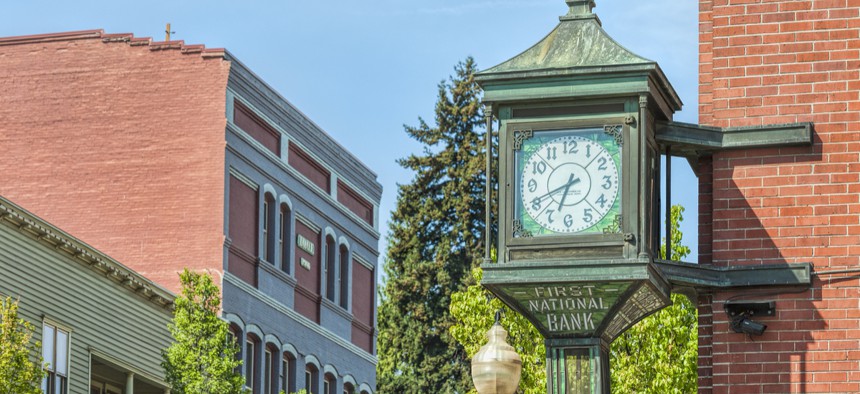A Push to Rework How Buildings Are Declared Historic

Oregon is one of only 15 states that do not currently offer tax credits for restoration work on historic properties. Shutterstock

Connecting state and local government leaders
The legislation, proposed in Oregon, would implement a public process for historic designation and provide tax credits for rehab work.
A package of proposed bills in the Oregon legislature aims to revamp the state’s historic preservation system, implementing a public process for designating a building as historic and providing financial incentives for repairs and upgrades.
Currently, Oregon’s historic preservation system hinges on an “owner consent” provision that allows only a property’s owner to approve a designation, leaving local government and community members out of the process entirely. If a property owner rejects the designation, the property may be demolished even if it is historically significant, according to Restore Oregon, a nonprofit organization dedicated to historic preservation in the state.
“It also doesn’t take into account a building’s age, significance to our culture or history, or the potential to provide affordable housing and business incubation,” the organization said in a blog post. “Communities are helpless to stop the demolition of homes and buildings that are historic and define the character of that community.”
The bills, introduced Tuesday in the state Senate Environment and Natural Resources Committee, aim to change that. The first, Senate Bill 927, would implement a public process by giving local governments the power to “adopt a historic resource program that fosters and encourages the identification, designation and protection of historic resources” within their jurisdictions.
That process would still take into account property owners’ rights and land-use regulations, among other things. Once a property is deemed historic, local governments would also be in charge of enacting protections for it.
A second piece of proposed legislation, Senate Bill 929, would implement a 25 percent tax rebate on rehabilitation costs for historic properties and a 35 percent rebate for seismic retrofitting (any upgrades that make a structure less susceptible to earthquake activity). As written, the bill would prioritize housing projects and require that a third of funding go toward small projects or ones based in rural areas. The money would come from a fund created by auctioning state income tax credits.
More than 30 states offer some form of historic tax credit to offset costs for property rehabilitation, but Oregon currently doesn’t, which may be hampering restoration projects, according to Renee Kuhlman, director of policy outreach at the National Trust for Historic Preservation.
“States with historic tax credits typically see twice as many renovations occur in the year after adoption,” Kuhlman said in a statement. “Oregon is one of only 15 states without a tax-based incentive for rehabilitation.”
The goal, supporters said, is to modernize the state’s historic preservation process, as well as to increase transparency.
“In this time of rapid change, if we want to retain the unique sense of place that defines communities across Oregon, we need much better processes and tools,” state Sen. Michael E. Dembrow said in a statement. “These bills enable a balanced, community-based process that retains cultural heritage while also establishing an essential financial tool for restoration, conversion into housing, and seismic upgrades.”
Kate Elizabeth Queram is a Staff Correspondent for Route Fifty and is based in Washington, D.C.

NEXT STORY: Helping Police Divert Mental Health Patients From ERs




